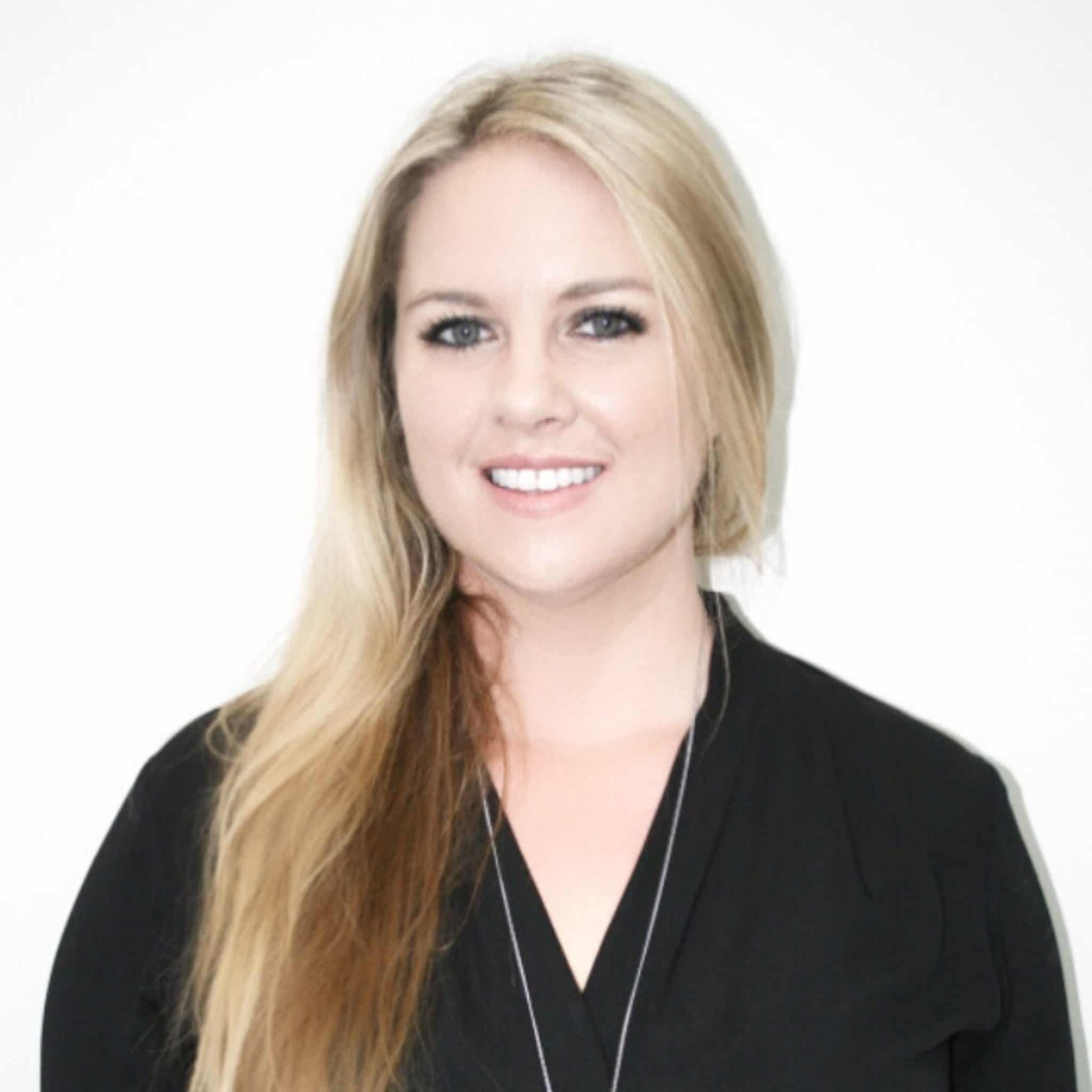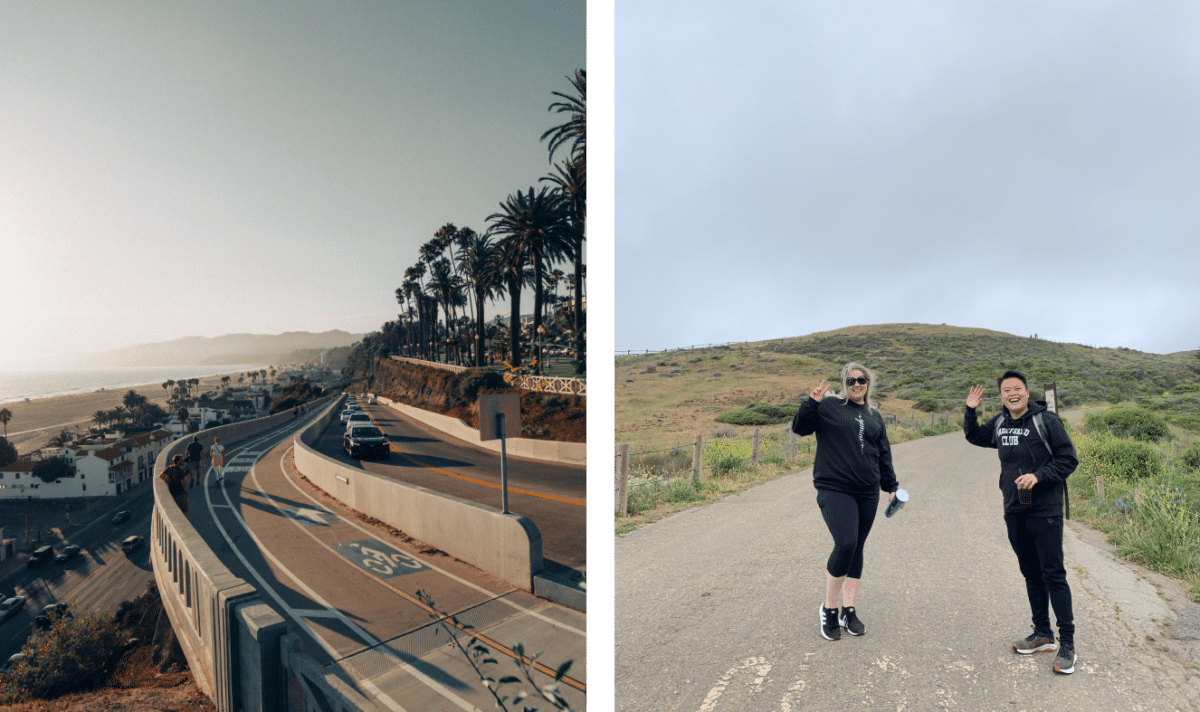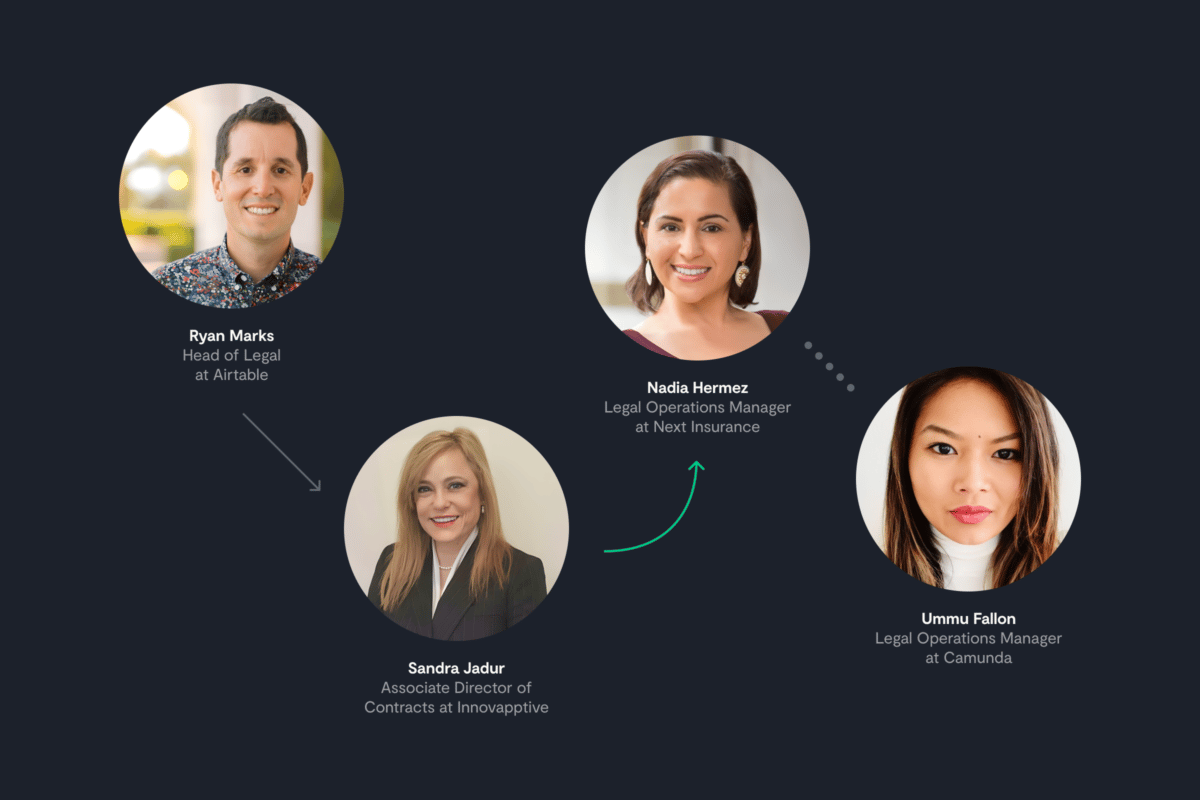You started at law firms. How did you find your way into in-house legal operations?
I started my legal career at McDermott Will & Emery, moved onto Townsend & Townsend & Crew, and ended my law firm days at Goodwin Procter.
While I was at Goodwin, someone from Gilead reached out. They were looking to start building a litigation team and wanted to hire a paralegal at the same time as the VP of Litigation. I was always told that going in-house was “the goal,” so I was excited to get the opportunity. Little did I know that moving in-house would lead me down the path to my legal operations career!
When did you realize, “Hey, legal ops is a thing?”
During my four years at Gilead, I was involved in building a robust end-to-end e-discovery process. We also selected and implemented matter and outside counsel management systems and other technology as we quickly grew. That’s when I realized I was managing operations in addition to my paralegal responsibilities. To be honest, I had more fun and was better at the operations and management piece.
I didn’t realize it was a thing until I joined SurveyMonkey, but I knew I loved it and wanted to continue to pursue a career that merged my two passions: law and efficiency.
You’ve worked at some great companies, from SurveyMonkey to Fitbit and now Snap, Inc. What have you learned along the way about leading a legal operations function?
As a legal operations professional, you’re in customer service—so if you don’t like helping others, you won’t be successful. Also, in smaller companies, you may not have a formal team, but your team becomes your cross-functional partners: IT, finance, sales, marketing, and other legal team members. It takes a village.
It’s also important to figure out what the process should be first, listen closely to your internal clients’ needs, then find process-complementary technology. Keep that birds-eye view of what makes legal ops so helpful. Meet with IT on enterprise system changes, record all legal owned technology and interaction/integration set-ups, and ask for ops POCs from each legal team (and meet with them regularly). Understand your company’s enterprise IT process. Everything you do technology-wise for legal has to fit into a larger enterprise process, so understanding that process is a foundational step to improving legal.
Finally, be sure to message changes to systems or processes as “we before me.” Reiterate that the change will help the company by enabling business continuity, scalability, and compliance. Sometimes systems or processes become personal. Putting together a deck on the “why” is always helpful.
If you sense someone is worried about you automating them out of the job, reiterate that you are only there to help drive them up the value chain and reduce their administrative lift.
What are your thoughts on hiring for legal ops? Should it be a first key hire, or can it wait?
The earlier you hire for legal ops headcount or consultation, the better. In past companies, if we had hired headcount sooner, there would have been much less attorney time spent on administrative tasks, less tool and process fragmentation, and fewer operational inefficiencies.
As you grow your team, how do you evaluate where to allocate headcount?
It’s important to spend enough time in a role before considering any additional headcount. You need a deep understanding of team, department, and company needs before you can recommend adding additional talent or skillsets. For legal operations roles, communicate (e.g. share the job description and scope of the role) with both legal leadership and the entire legal team to help justify additional headcount. I am also mindful of what growth might look like for the new role.
What skills does it take to be successful in legal operations?
You have to love wearing many hats: problem-solving, project management, logistics, and customer service. Of course, you must understand the specific needs of a legal department and love working on and leading cross-functional teams. You have to be an expert at managing up, highly organized, and highly responsive. Finally, you have to get out into the wonderful legal operations community; they will inspire you endlessly!
Can you share some of the challenges in legal ops that are top of mind for you?
We were excited about new legal technology a few years ago, but now I’m mindful of tool fragmentation. I want to consolidate tools and processes and only add new ones after careful consideration.
Another general challenge is dealing with perceptions and attitudes like: “What do we need operations for?” and “Email and Excel work great, why do we need anything else?”
Yes, during my career, I have been asked those questions. We are change agents, and change is hard for everyone. My advice here is to go find your operations allies first, do great work with them, and then revisit those who are skeptical.
If you are the first legal operations hire, build your internal brand ASAP. Create “What is Legal Operations?” overview slides, share your projects list as widely as possible. Be as transparent as possible. These helped me win over those who weren’t initially excited. If you sense someone is worried about you automating them out of the job, reiterate that you are only there to help drive them up the value chain and reduce their administrative lift.
In your role, technology is a key area of responsibility. How do you set expectations for using technology? How do you drive adoption of the various tools in your tech stack?
Get executive approval by building a good business case. Include your executive team in the roll-out communications plan. Get early buy-in by including team members in the initial RFP process. Make the launching of the new technology fun, have a lemonade stand on launch week, and answer questions. Provide easy access to training and help when needed. Put in controls to drive adoption. If you are implementing a contract management system, consider blocking or auditing systems where contracts were previously stored.
What would you tell your 25-year-old self?
Someday you’re going to work for Snap! So, it gets better. At 25, I was working at a law firm and not being treated very well, frankly. Keep letting your heart guide you, work hard. Be kind, inclusive, build others up. It will all be worth it!
Do you have a mentor? What advice do you have as a mentee?
I have been blessed to have the best mentors in my career—they made all the difference, and I would be nowhere without them! From my law firm days, shoutouts to Suzie Gonzales, Erin McKinney, and Bijal Vakil. In-house, I had the privilege to learn from incredible legal leaders, including Stephanie Corey, Matt Hollander, Gloria Lee, Eric Lentell, and Jill Fukunaga.
Recently, I have enjoyed connecting with people trying to make the jump from law firms to in-house, and/or paralegal to legal operations. Someone just reached out to me on Linkedin, noticed we both went to the same university and wanted to know more about legal operations. Now, we talk regularly. Of course, you can network at events, but don’t forget to look for mentors among your co-workers. Lastly, you can always reach out to me!
Want more stories like this?
Ironclad is not a law firm, and this post does not constitute or contain legal advice. To evaluate the accuracy, sufficiency, or reliability of the ideas and guidance reflected here, or the applicability of these materials to your business, you should consult with a licensed attorney. Use of and access to any of the resources contained within Ironclad’s site do not create an attorney-client relationship between the user and Ironclad.






